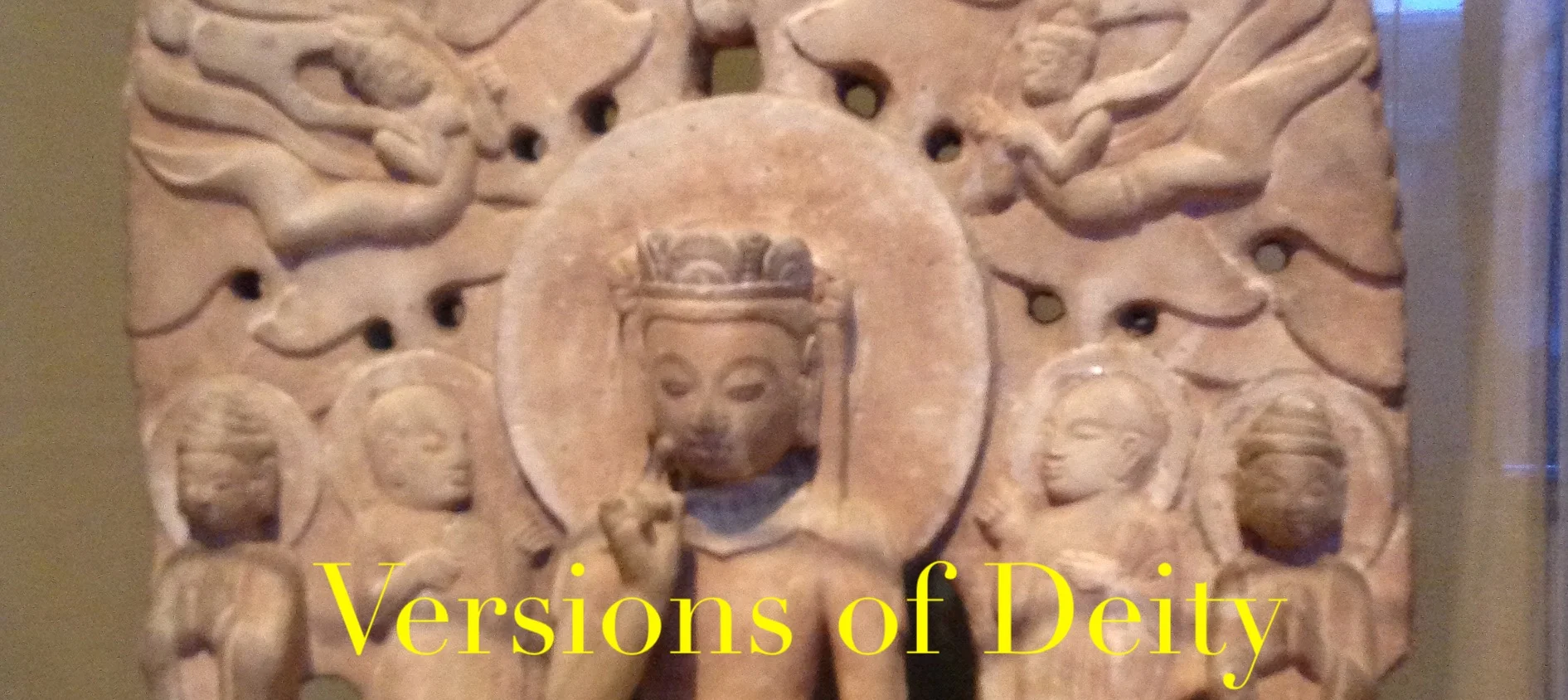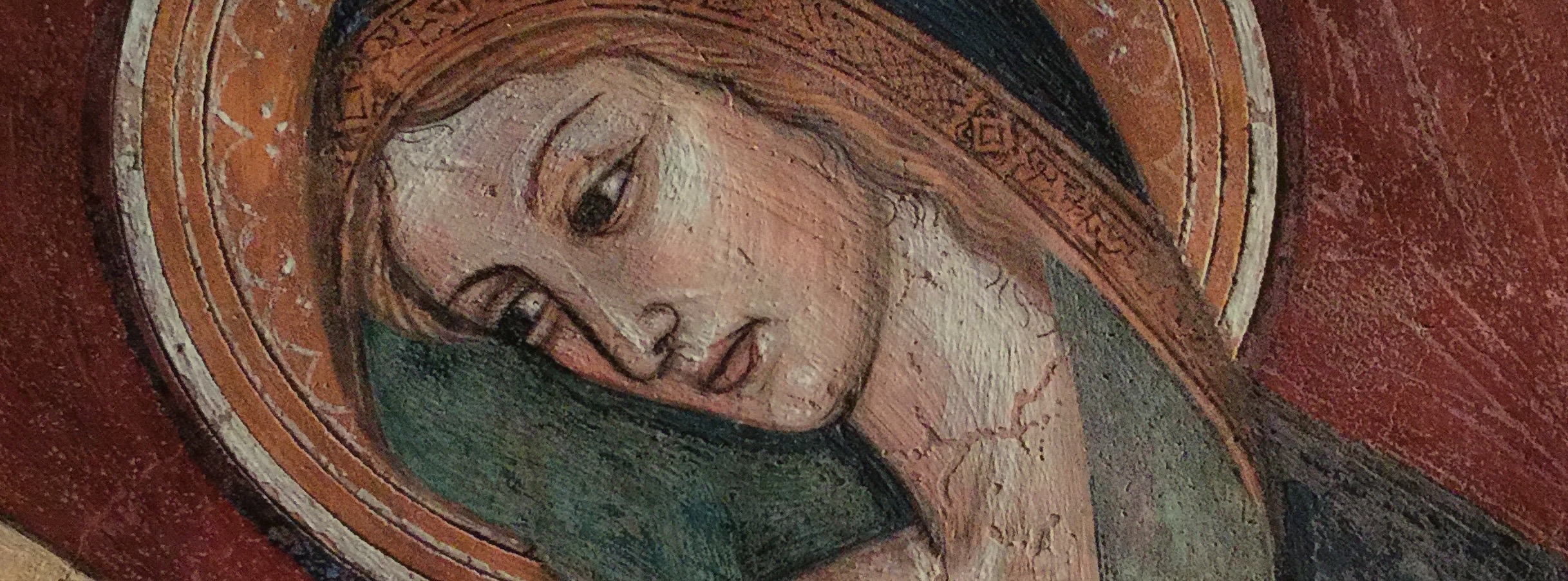Gospel & Universe ⏯ Systems
Versions of Deity
Hindu Substitutes - Why Not? - From “Agnosticism” (1889)
⏯
Hindu Substitutes
Unlike theists who tend to believe in a particular conception of God and soul, and unlike atheists who refuse any conception of God or soul, agnostics entertain a variety of possible frameworks. These frameworks are historically and culturally constructed; they are ready-made frameworks which lay out before us big pictures of the universe. They also hint at who we are and how we might fit into the universe. While formulated in pre-democratic days, religions also strive toward solid moral and legal frameworks, ones that won't shift with the winds of history and geography or with the vicissitudes of politics and culture. To believe in one of these conceptions may make the universe a solid, understandable thing, yet to contemplate many of these conceptions — and to juxtapose these to none of these conceptions — makes the universe an unpredictable, mysterious realm worthy of our deepest and continual study.
If God exists, He, She, or It might take the form of a personal Being (Yahweh, Allah, Brahma, Vishnu, Mahadevi, etc.) or an impersonal Force or Principle (the One, Being, Brahman, Tao, etc.). In Hindu philosophy, God can be both impersonal and personal at the same time, the ineffable Brahman manifesting Itself in universes, gods, demons, humans, etc. Brahman can also shift into what I call SUBs or Supreme Unifying Beings such as Vishnu, Shiva, or Mahadevi. These might be seen as substitutes for the ineffable, formless Brahman. Like the vibration OM, these deities merge all differences, including their own particular attributes, back into the One or Brahman, that is, into the sum of the physical and spiritual energies in the universe.
Many Hindus find this type of philosophy (which is closest to Advaita Vedanta) rather detached, and prefer to see God in Bhakti or emotional forms, such as the loving Krishna, the Divine Mother, or the blending of aspects seen in the union of Radha-Krishna. There may be some overlap here with Catholic and Orthodox Christians who, finding Yahweh rather distant and austere, find comfort in the loving, forgiving figures of Jesus and Mary.
Agnostics also contemplate a variety of eventual scenarios: if the soul exists, it could take an afterlife existence that is 1) free of a bodily form, 2) in a completely different body or form of existence, or 3) in a human body on Earth, in Heaven, Purgatory, or Hell, in another world in this universe, or in a world or dimension removed from this universe.
⏯
Why Not?
Most theists believe in a particular existence in the afterlife, although some theists are less certain about the form a soul will take after the body dies. Atheists, on the other hand, formulate a thesis before all the evidence is in. For them, God doesn't exist and no one has a spirit that lasts beyond our earthly years. To be fair, the scientific evidence doesn't so far indicate the existence of God or soul, let alone such things as a Garden of Eden or a Resurrection. Yet the agnostic doesn't rule out these possibilities. They remain hypotheses, some of which appear next to impossible, such as Creation occurring in a week, while others appear very unlikely, such as God delivering the Ten Commandments on Mount Sinai, God having only one Son and one Holy Book, Jesus walking on water, or Jesus lifted by sorrowful angels into the sky:
The following two hypotheses are neither likely nor unlikely, given that they're completely open for debate:
1. There's a benevolent Power that governs the universe.
2. Humans have souls, essences that exist after the body's gone (whether or not they're eternal is another matter). Atheists may claim that the weight of scientific evidence, or rather the lightness of non-evidence, lies in their favour. They're correct in this. Yet they might also remember that:
- Experiential states don't necessarily come in quantifiable or verifiable forms.
- Things that were once invisible or completely mysterious (distant galaxies, subatomic particles, etc.) were in time subject to the investigation of science. In his 1889 essay, “Agnosticism,” Huxley writes, “That which is unproven today may be proven by the help of new discoveries to-morrow. The only negative fixed points will be those negations which flow from the demonstrable limitation of our faculties. And the only obligation accepted is to have the mind always open to conviction.”
- The truth of any given reality isn’t always graspable by the system used to grasp it. To use an analogy, humans may be like smart domesticated dogs: integrated with and aware of their surroundings, yet largely in the dark about the powers and principles that structure their existence.
Agnosticism is similar to science, humanism, liberalism, democracy, and secularism: it provides an invaluable method for living in the practical world. Its creed, if it has a creed, is to doubt all beliefs and systems of belief unless these can be experienced, seen in plain sight, or otherwise verified. While agnostics don't know any Ultimate Truth about this world or the next, they are open to the possibility of such a Truth.
From “Agnosticism” (1889)
Agnosticism, in fact, is not a creed, but a method, the essence of which lies in the rigorous application of a single principle. That principle is of great antiquity; it is as old as Socrates; as old as the writer who said, "Try all things, hold fast by that which is good." It is the foundation of the Reformation, which simply illustrated the axiom that every man should be able to give a reason for the faith that is in him; it is the great principle of Descartes; it is the fundamental axiom of modern science. Positively the principle may be expressed: In matters of the intellect, follow your reason as far as it will take you, without regard to any other consideration. And negatively: In matters of the intellect do not pretend that conclusions are certain which are not demonstrated or demonstrable. That I take to be the agnostic faith, which if a man keep whole and undefiled, he shall not be ashamed to look the universe in the face, whatever the future may have in store for him.
⏯
Next: Churches of Thought








